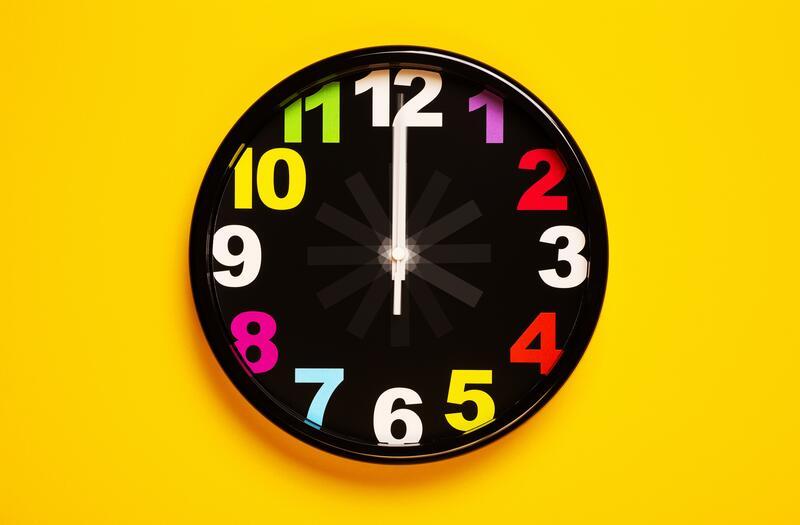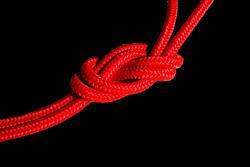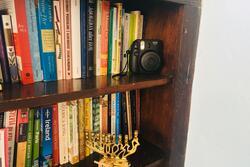The Pandemic Has Liberated Me from the Responsibility of Ritual-Keeping
I took off my watch on March 19, 2020, the first day of California’s statewide stay-at-home order, and haven’t put it back on since. At the time, it seemed like a strange reflex, perhaps an instinct, foreshadowing the year to come. Only months later, I realized it was something more than that. The simple act of unclasping my watch from my wrist was an unshackling of sorts. But what was I freeing myself from?
I grew up in a multi-generational modern Orthodox home in the suburbs of Philadelphia where timetables and timing were of the utmost importance. Every Friday, the candle lighting chart on our refrigerator loomed over the day, indicating when we were to pay careful attention to the clock. And oy to the women of the household if that clock ticked past the prescribed time to bench lecht, or light the candles.
“What time? What time does it say exactly?” I’d hear my grandfather call out to my mother in the early morning, before I left for school on Fridays. And that call to action started a flurry of activity in the kitchen and the house, as cabinet doors flung open, drawers were yanked out and the kitchen floor became dusted with flour. All this commotion only came to a full stop when I heard the sound of matches being lit in the dining room, hours later, at precisely the time the candle lighting chart ordained.
I learned early on that time was our master, and by our, I mean the women of the house. It was our responsibility to make sure the cooking was done, the Shabbat clocks were wound, the table was set, and the refrigerator light was off.
But Shabbat wasn’t the only source of time pressure in my house. In December, months ahead of Purim, my grandmother started putting aside orange peels for the hamentashen she would bake in March. Early in January, my mother fretted about exactly when she should bring up the Passover dishes from the basement. “Holidays,” she’d lament to me “are for the enjoyment of men. We women work too hard to prepare for them, and we are on the clock.”
We women? On the clock?
And then it dawned on me, even as a child, that ritual-keeping delegated to men seem so much more relaxed. My father never hurried to put on his morning tfillin as he wound each strap slowly and carefully up his arm. My father and grandfather took their time building the sukkah, even though there were scant days between Yom Kippur and Sukkot. And my grandfather didn’t rush as he made his sweet wine in the basement, each grape falling down the giant bottle one by one into a sugary bottom, all without any time constraints. Men, it seemed, had the luxury of time.
Although I no longer lead an Orthodox life, some of those pressures, that burden of timeliness, followed me for years. Shopping for holidays, getting the kids ready to go to synagogue, coordinating and inviting family and friends were all part of my job description. I was the one who had to make sure I found the right brand of Passover matzos before the supermarket ran out. I was the one who had to clear everyone’s business and school calendars for upcoming holidays. I was the one in charge of making sure that the ticking clock didn’t go overtime.
Then came Covid-19 with its mush of days, turning into weeks, weeks morphing into months. Lockdown is scary and lonely—time seems to stand still. There are no birthday parties and anniversaries as we knew them. Jewish holidays aren’t observed in the same way. The two-person Seder, the Rosh Hashanah Zoom, the Yom Kippur without a break-fast were all painful. Yet, the pandemic has also been unexpectedly liberating. I have the freedom to stop the clock of ritual-keeping that remained embedded in my head, the clock entrusted to women for centuries.
Now, there is little to cook. I don’t have to worry that the tablecloth hasn’t been ironed. The table for two is set in record time. I don’t have to corral everyone, myself included, to be on time for synagogue. Makeup is moot, and dressing up seems equally unnecessary. I don’t have to search for my husband’s talis, buried somewhere in his closet. There is a small blessing somewhere inside the curse of this horrible pandemic, and I have to admit, and not without a large dose of Jewish mixed with womanly guilt, that it doesn’t feel so bad not to be tied to the clock. The pressure is off.
Our lives are thankfully improving on the pandemic front, now almost a year later. And of course I look forward to going back to “normal.” There are baby showers and milestone birthdays to look forward to. There are holidays I want to spend with family and friends, and I want to enjoy seeing multiple generations seated across the table from me. I want to sit in the sukkah, crammed with people and food, and shoo away the autumn bees. But for the time being, that watch still remains in the drawer. Maybe I won’t take it out again. Maybe I will. Maybe I’ll keep it as a reminder to find balance and cherish my time.








I read this well written piece with Envy. I am in a Writers Group, all
Amateurs, especially me, I have been wanting to write about 2020. Although,I'm not sure that I have totally processed the surreal aspects of the prior 12 mos. Your piece highlighted a plus,of being
Being liberated from the odious Time
Task master. You are so right that
Men don't angst over Holidays. It's
A definite Woman thing. Perfection must be served. Thanks for giving me some needed inspiration.
I just love this. I can relate on so many levels and I too felt the weight of taking the watch off back in March. I left it on top of my 2020 planner, which has also not been opened since. An unexpected pandemic perk has been making challah on Shabbat. There is something therapeutic and also something spiritual in the kneading. It also reminds me what day of the week it is and makes Fridays stand out from the rest.
I definitely agree with you, there is more time to slow down and enjoy life, aside from covid, the way society was previously wasnt working people didnt have much time to spend with their kids or family, if it wasnt for social distancing as well as a virus, people would be having laid back get togethers, This seems like a wake up call for people to appreciate who and what they have in their life, to slow down a bit, enjoy nature more,be kinder to one another and care for the planet and animals, We cannot think this "new normal" is suitable to live life either, we need a balance that is better than before and that isnt what we are dealing with now
Hi Leora: I have thought the very thoughts you articulate so beautifully in your article...the religious and secular responsibilities. I reflect that Pesach is my favorite holiday, but also the most work. I will miss the long tables filled with family and friends, but I won't miss the work and exhaustion. I miss visiting with old friends but dont miss the several nights a week of getting all dressed up and made up to fight traffic to get to a restaurant on time. As we crawl to some degree of normalcy, adjusting to it will not be easy. Keep your watch handy!Thank you! Love, dianne gorsey